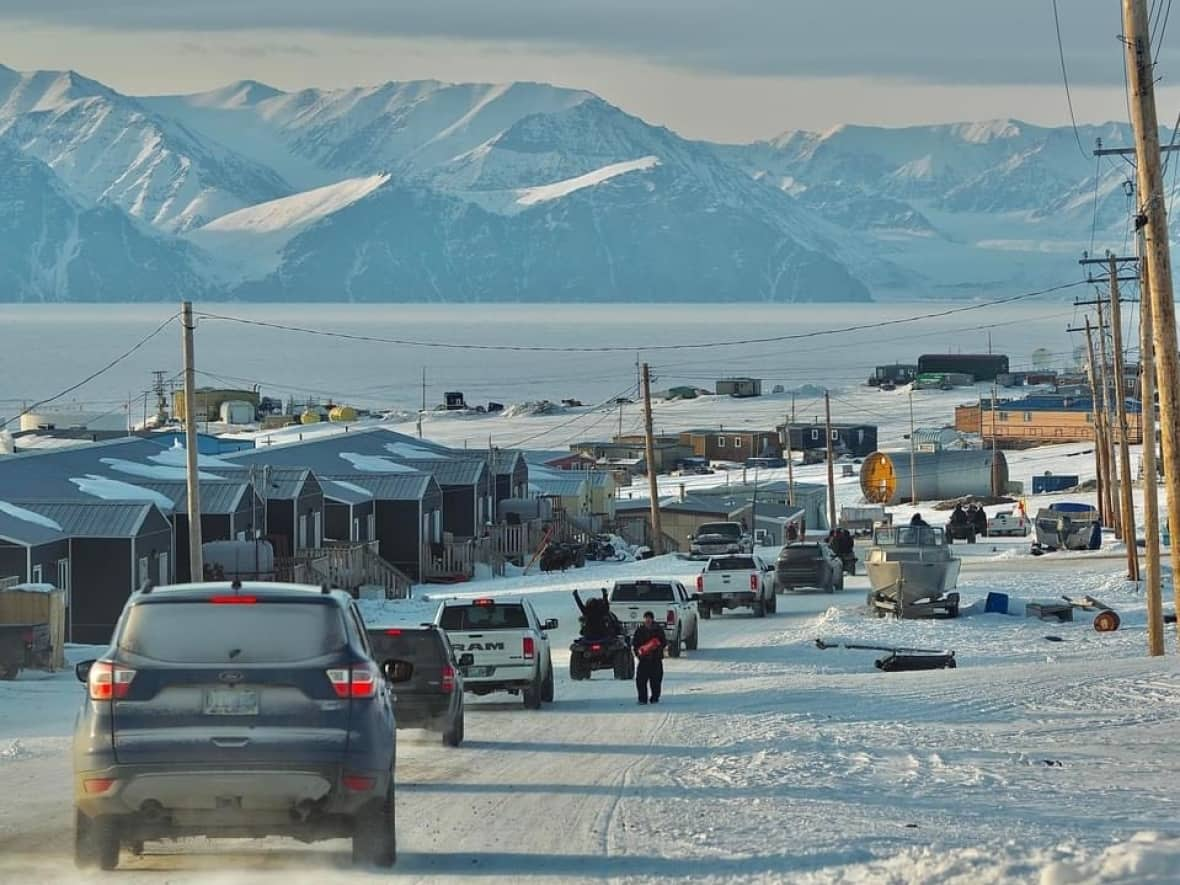Nunavut mayor 'improperly' endorsed Baffinland mine expansion, says Pond Inlet councillor

A municipal councillor in Pond Inlet, Nunavut, is accusing the hamlet's mayor of bypassing council to push for a controversial mine expansion.
In a letter to Canada's northern affairs minister, Pond Inlet Coun. Boazie Ootoova says Mayor Joshua Arreak violated municipal rules by "improperly" endorsing the Baffinland Iron Mines project without council's approval.
Baffinland, which operates the Mary River iron ore mine on north Baffin Island, is proposing to double production at the mine and build a railway from the mine site to its port facility. Pond Inlet is the nearest community and dozens of local residents work at the mine.
On Friday, the Nunavut Impact Review Board (NIRB) issued its long-awaited recommendation on the expansion project, and it decided that it should not go ahead.
That's despite a letter received by the NIRB in January from Arreak, to be entered as Pond Inlet's final submission to the review process. That letter urged the approval of Baffinland's expansion, citing the jobs and financial benefits that the mine provides to Inuit in Pond Inlet.
Ootoova, however, says Arreak's letter was written without council's approval, and that it contradicts other hamlet resolutions that opposed the Baffinland expansion. It gives the "false impression" that Pond Inlet supports the project, and Ootoova felt it was his duty to report that, he wrote to the federal minister.
"There is no record of this letter in the minutes from hamlet council meetings and council members have confirmed that they were not aware of this letter before it was filed with the NIRB," Ootoova wrote.
"This letter should be removed from the NIRB registry and should not be interpreted as an endorsement of Baffinland's Phase 2 application by the Hamlet of Pond Inlet."
Ootoova also suggests that Arreak's letter to NIRB "closely resembles" a presentation made by Baffinland executives a few months earlier to Pond Inlet council.
"There was no resolution endorsing their position or the points they raised in their presentation to Council," Ootoova wrote.
Arreak's letter to the NIRB describes how Pond Inlet has already benefited from the mine, how the expansion project will mean more jobs and benefits, and how Inuit have been promised more input and control over the development.

The company has also suggested that the mine may be effectively shut down if the expansion is not approved.
"This mine must stay open," reads Arreak's submission to the NIRB.
"Pond Inlet will not be able to replace the lost jobs to the residents of Pond Inlet, nor will it replace the economic benefits should this mine close."
Speaking to CBC in Inuktitut, Ootoova said Arreak's letter to NIRB made him very upset. He does not support the proposed Baffinland expansion because he feels the existing mine is already disturbing wildlife and the environment.
Pond Inlet Mayor Arreak did not respond to the CBC's request for an interview.
Decision expected within 90 days
The NIRB completed its nearly four-year review of the Baffinland expansion project with the recommendation issued on Friday. The final say, however, rests with Northern Affairs Minister Dan Vandal who has said that a decision will come within 90 days.
The NIRB's 441-page report details areas of uncertainty around what the expansion project would do to the environment, local culture and food security. The board also cited a gap between how Inuit are experiencing the effects of the existing mine, and how Baffinland has responded.
In a letter to Vandal, NIRB chair Kaviq Kaluraq said the mine expansion has the potential for "significant adverse ecosystemic effects" on marine mammals, fish, caribou and other wildlife, which in turn could harm Inuit culture, land use and food security.

Some people in Pond Inlet responded to the NIRB decision on Friday by celebrating. A line of people and vehicles paraded through town, some waving Nunavut flags.
Baffinland issued a written statement on Friday, saying the company was "surprised and disappointed" by the NIRB's recommendation. It promised "a more fulsome response" in the coming days.
The Nunavut government on Friday also said in a news release that it would analyse the NIRB report, "to evaluate how these recommendations will impact Nunavummiut and Nunavut communities."
"A full review will be taken of the report to understand how NIRB reached its decision and how intervenor feedback obtained throughout the lengthy review process was considered in the final determination," the release states.
Oceans North, a non-profit environmental group and an outspoken critic of Baffinland's environmental impact, issued a statement on Saturday saying the NIRB's recommendation "affirms positions taken by the most impacted Inuit communities—notably Mittimatalik [Pond Inlet]."

Chris Debicki of Oceans North said in a written statement that the Mary River mine can benefit Nunavummiut and all Canadians, if "properly developed."
"We trust that Minister Vandal will respect the NIRB's recommendation and will secure the careful development of this resource while safeguarding the living resources upon which North Baffin communities depend," Debicki wrote.
NIRB's recommendations are not always accepted. In 2016, when the board recommended a gold mine in Nunavut's Kitikmeot region not be allowed to go ahead, then-federal minister Carolyn Bennett rejected that recommendation, asking NIRB to give the project a second chance.
That mine was given approval the following year.


